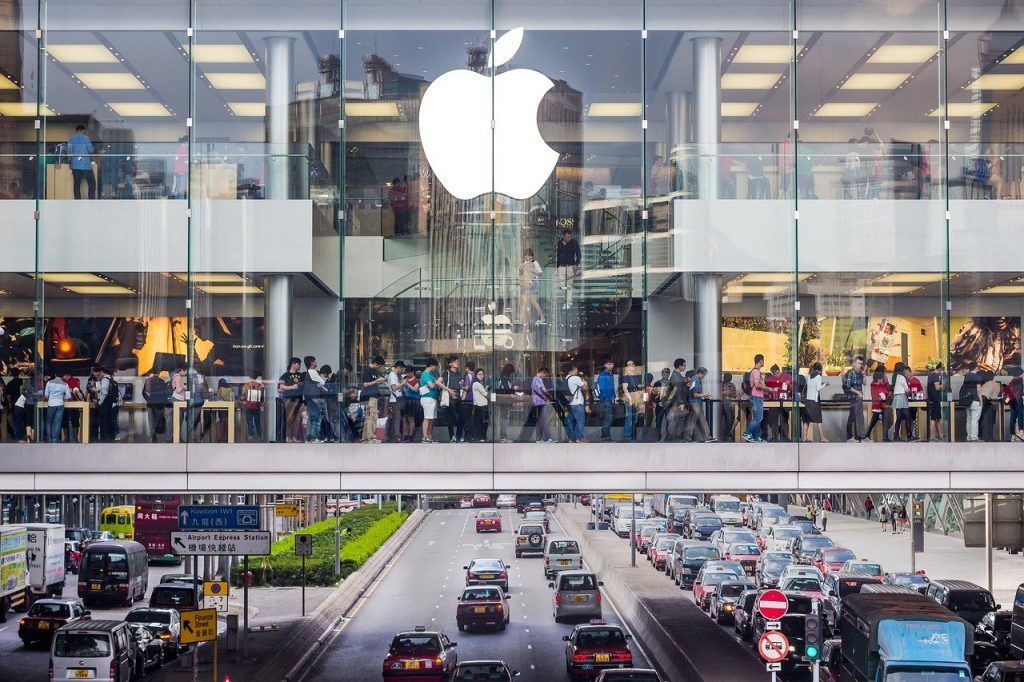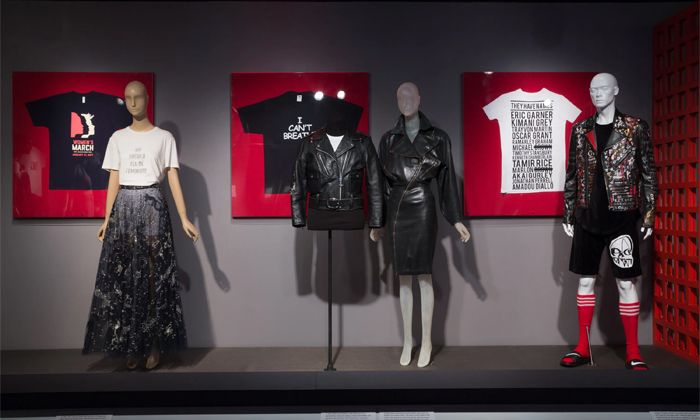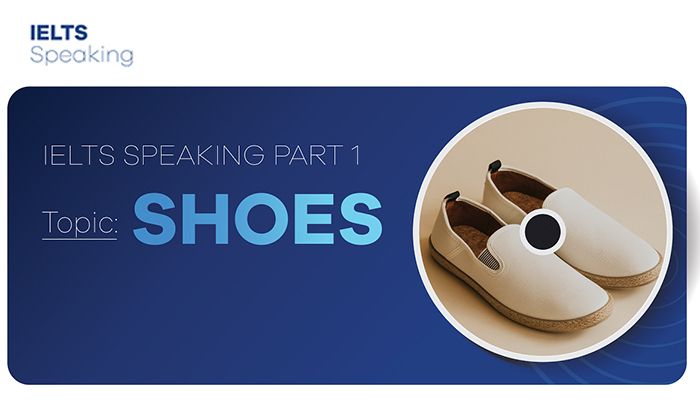
Trường THCS Năng khiếu tuyển sinh khóa đầu tiên bằng trắc nghiệm và tự luận
Thứ tư, 16/4/2025, 03:40 AM
Trường THCS Năng khiếu (thuộc ĐH Sư phạm Hà Nội) vừa công bố chỉ tiêu và các phương thức tuyển sinh.

Spotlight English is an audio program made for people who are learning English. Each program serve learners in two ways.They help people practice their English listening and understanding. They also are about subjects that can improve the lives of listeners and their communities.
In many wealthy countries, people celebrate an unusual holiday: Buy Nothing Day. Why would people choose NOT to buy things? Robin Basselin and Adam Navis look at this holiday.
Click below to play
[LISTENING CONTENT]
Voice 1
Welcome to Spotlight. I’m Robin Basselin.
Voice 2
And I’m Adam Navis. Spotlight uses a special English method of broadcasting. It is easier for people to understand, no matter where in the world they live.
Voice 1
Adil Das recently immigrated to Vancouver, Canada from Eastern India. Das enjoys living in Canada. But sometimes he does not understand particular things about Canadian culture. One day, Das was watching television. A short advertisement began playing. A map of North America appeared on the television. On the map was a picture of a pig. Slowly, the pig began to grow. It got fatter and fatter. Soon, the pig covered the whole map. Then, a voice said,
Voice 2
“The average North American buys five times more things than a Mexican, ten times more than a Chinese person, and 30 times more than a person from India.”
Voice 1
The advertisement was a message about “Buy Nothing Day.” This holiday encourages people to stop buying things. Das is not sure how he feels about “Buy Nothing Day.” He works hard. And he wants his family to be able to buy things that they want. He wonders why Canadians would celebrate not buying anything. Today’s Spotlight is on the unusual holiday – “Buy Nothing Day.”
Voice 2
“Buy Nothing Day” began in the 1990s in Vancouver, Canada. It was the idea of a man named Kalle Lasn and his organization Adbusters. Before starting Adbusters, Lasn worked for many years in advertising. He helped companies research what influenced people to buy things. But Lasn began to question the ways advertisers influenced people to buy things. He also questioned the culture of buying. Was it good to make people feel like they should always want more and more? “Buy Nothing Day” criticizes this culture of consumerism.
Voice 1
Lasn recognizes that people need to consume things. They have to buy things to eat, live and even enjoy life. But Lasn believes that many companies encourage people to consume far more than is necessary. Advertising this way helps companies make money. But Lasn believes it hurts people and culture. Lasn told The Sun Magazine,
Voice 3
“Companies have reduced us to consumers. They encourage us not to take part in society. We are just supposed to listen and watch advertisements and then buy. The media tells us that our desire to belong can be satisfied at any store, for the right price.”
Voice 2
So Lasn decided to use advertising against companies. Adbusters tries to help people understand some of the false values and ideas behind advertising. The main value Adbusters fights is the idea, “You must consume more to be happy.” And one way they do this is by encouraging people to celebrate “Buy Nothing Day!”
Voice 1
“Buy Nothing Day” is celebrated on the fourth Friday of every November. Adbusters chose this day for a very important reason. It is the biggest buying day of the year. Advertisers call this day Black Friday.
Voice 2
Black Friday is particularly famous in the United States. It is the day after the country’s Thanksgiving holiday. On Thanksgiving, people in the United States gather with family and friends to eat a meal and give thanks. In recent years, stores began to reduce their prices the day after Thanksgiving. They wanted to encourage people to start buying gifts for the Christmas holiday in December.
Voice 1
However, in recent years, Black Friday has become famous for something else: greed and violence. On Black Friday, stores offer extremely reduced prices. But they only offer limited amounts of product. So people come early in the morning – or even the night before – to stand in lines outside stores. Sometimes, people push or fight to be first into the store. Some people have even died in Black Friday riots!

Voice 2
“Buy Nothing Day” hopes to end the greed and violence of Black Friday. But its message is bigger than just Black Friday. “Buy Nothing Day” is for people in the United States and around the world. Many other countries also have growing problems with too much consumption. Sixty-two different countries, from Germany to Japan, already celebrate “Buy Nothing Day”. And the message is the same everywhere – buying too much hurts people, culture and the planet. The British “Buy Nothing Day” website explains,
Voice 4
“Buy Nothing Day is a simple idea. It fights consumer culture by asking us to stop buying for a day. Anyone can do it if they spend a day without buying.”
Voice 1
For some people, “Buy Nothing Day” is a protest. For other people, it is a party. Some groups go to stores and encourage other people not to buy things. Other people gather together to make Christmas gifts instead of buying them. And some people use the day to create works of art that protest against consumer messages. Often, people celebrate by enjoying the free gift of nature. They go for walks or watch the sunset together. The only rule of “Buy Nothing Day” is not to buy anything!
Voice 2
Some people question if “Buy Nothing Day” can really change culture. It is only one day. And telling people not to do something often does not work! Other people say that consumers should not just buy less, but they should buy better. These people encourage consumers to buy things that are made in ways that do not hurt people or the environment.
Voice 1
But “Buy Nothing Day” does get people thinking about the negative effects of buying too much. Kalle Lasn told The Independent news organization,
Voice 3
“A lot of people have had deep learning experiences when they tried celebrating “Buy Nothing Day”. It was like giving up an addiction to drugs.”

Voice 2
Buying more and more things can be like an addiction. Often, the more people buy things, the more things they want. Tom Gilovich is a human behavior scientist. He performed several studies that examined people’s emotions when they buy things. And he found that people are happier and more satisfied when they spend money on experiences instead of things. He wrote,
Voice 5
“Satisfaction over purchases decreases over time. A new car does not stay new for very long. But a satisfying experience often becomes more positive over time as we remember it.”
Voice 1
So, what do you think about “Buy Nothing Day?” Is buying too much a problem in your culture? Does advertising make you want to buy more than you should? Would you ever celebrate this holiday? Tell us what you think. You can leave a comment on our website. Or email us at radio@radioenglish.net. You can also comment on Facebook at Facebook.com/spotlightradio.
Voice 2
The writer of this program was Jen Hawkins. The producer was Mark Drenth. The voices you heard were from United States and the United Kingdom. All quotes were adapted and voiced by Spotlight. You can listen to this program again, and read it, on the internet at www.radioenglish.net. This program is called, “Buy Nothing Day.”
Voice 1
We hope you can join us again for the next Spotlight program. Goodbye!
Question:
Does advertising make you want to buy more than you should? What do you think about a day where people celebrate not buying anything?
Tin tức liên quan

Thứ ba, 6/12/2022, 04:01 AM

Thứ ba, 6/12/2022, 04:02 AM

Thứ ba, 6/12/2022, 04:00 AM

Thứ hai, 5/12/2022, 10:12 AM